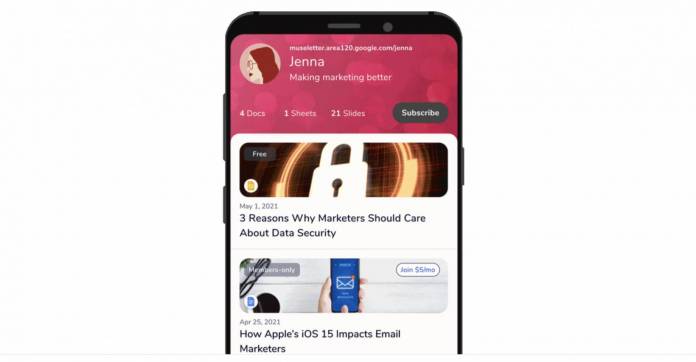
If you have a lot of content saved up on your Google Drive but don’t have the time or the capability to turn them into newsletters, Google’s experimental internal incubator Area 120 may have just the thing for you. They are testing out a new tool called Museletter that can turn your Google Docs, Sheets, or Slides into a newsletter that you can send to subscribers. You can even earn money from it by charging a fee if that’s one of your goals for growing your audience.
If you’re not familiar with Area 120, it’s a Google-owned incubator space for employees that have brilliant and marketable ideas for new products. Some go on to become actual apps and services while those that don’t become popular get deprecated eventually. Museletter is one of the new projects coming out of this space and will give users the option to turn their Doc, Sheet, or Slide into a blog or a newsletter that they can use to get more subscribers and a bigger audience.
The first step is to create a public profile over at museletter.area120.google.com. You’ll have to request for early access right now. You can then choose any file from your Google Drive and publish it there. You have the option to make it public like a blog or to publish content privately and share it to your email contacts or grant exclusive access to subscribers. You can also bring your email subscribers from other platforms into Museletter.
Some use cases that they give as an example is a marketing specialist that shares her Slides and offers paid subscription plans for her content, a world traveler that posts her photos with narration in a Google Doc, and a financial advisor that creates Google Sheets to show how you can save up for your retirement. Museletter can be used to share ideas, grow your audience, and even get paid for the content that you create.
Google says Museletter will be free but they will be offering premium features like custom domains and welcome emails but did not say how much that will be. There’s no specific date yet for the official launch but you can request for early access and they’ll let you know when you can start publishing.









